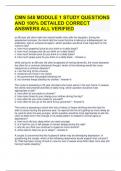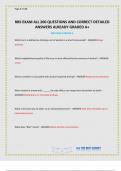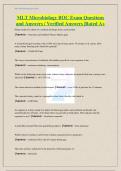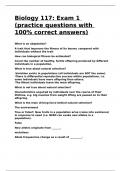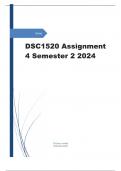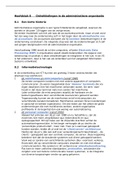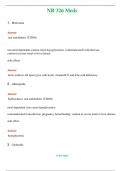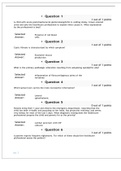Exam (elaborations)
CMN 548 MODULE 1 STUDY QUESTIONS AND 100% DETAILED CORRECT ANSWERS ALL VERIFIED
- Course
- Institution
CMN 548 MODULE 1 STUDY QUESTIONS AND 100% DETAILED CORRECT ANSWERS ALL VERIFIED An 80 year old client visits the mental health clinic with her daughter. during the assessment process, the client tells the nurse that she is taking an antidepressant, an antibiotics, and an occasional aspirin. which...
[Show more]
